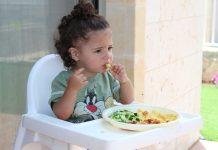“I wish people were more like cats. Cats treat other cats the same no matter what color they are.” John, age 10
As our kids get older, the conversations get harder. We have a responsibility as moms to teach our children about the world – the good and the bad. Of course, we would love to keep our kids in a Daniel Tiger bubble for as long as we can, but one day they will wake up to a harsh reality and will not have us to guide them through that realization. Or they could remain completely unaware of it all – and, perhaps, that is worse.
Instead of turning on Disney+ today, we had a conversation. This isn’t a new conversation for our family, though, admittedly, it’s not one we have often enough. But today, there was more news to share. A white woman calling the police on a black man who was birdwatching in a park. A black man being arrested for a nonviolent crime, dead at the hands of a white cop. A black man murdered by white neighbors while he was going for a run. And there’s more. I even shared that the conversation I was having with them was likely different than the conversations the parents of their black and brown friends were having with their kids. Our conversations are about awareness. Their conversations are about safety. Our conversations are spurred by intentionality. Theirs are out of necessity and experience.
As moms, we can end generational prejudices by starting conversations about racism with our kids. They pick up and understand more than we give them credit for – good or bad – so, let’s make it good. Start by having one conversation and then another…
As white mamas talking to our white kids, how will we know what to say?
Let’s be better listeners.
Moms – white moms especially – we have to raise a generation who listens to the stories of others, and that starts with us. Let’s try to understand with an open mind what people of color are saying. Go ahead. Just listen. Do we hear them crying out? What is our response? If our response is defense, listen harder. If our response is to add a “but…”, listen harder. If our heart is not breaking in response to story after story of injustice and prejudice, that is a cue that our ears and hearts are not in tune to what they are saying.
If our response to the phrase #BlackLivesMatter is that #AllLivesMatter, then consider this perspective (paraphrased from a recent interview with Kirk Franklin): if there is a neighborhood with a single house on fire, the firefighters are not going to point their water hoses on the homes that are safe. Instead, it will bypass those homes to extinguish the fire on that single house that is burning down. It’s not that the other houses do not matter, it’s that the house on fire is the one that needs the response and help from the firefighters. It’s not our house that’s on fire, it’s theirs. Listen as they cry out.
Let’s open our eyes.
We need our kids to be aware – we need to be aware – of the injustices of this world and not shut them out because we personally are not affected by them. We need to open our eyes and not pretend that racism doesn’t exist. It does. And it may look different than we think it does – it’s sometimes subtle, disguised as a joke or nonchalant remark. It may be a snap judgment that causes you to walk on the other side of the sidewalk or avoid eye contact. Look people in the eyes. Smile at them. Share a sidewalk with them because, like us, they are trying to get from point A to point B. More than we need star athletes and top scholars, we need to train up a generation whose strengths are kindness, empathy, and love who don’t treat people differently because of their physical appearance.
Let’s change our hearts.
Prejudice, from the Latin word praejudicium, means “judgment in advance.” Prejudice is the root of racism. Whether or not we are aware of it, we likely judge people based on gender, race, socioeconomic status, age, etc. The first way to change the narrative is to recognize prejudices in our hearts. The second is to be willing to change how we respond. The third is to start a dialogue.
In order for change to take place, we have to be hungry for that change.
I recently watched a video between four Christian ministry leaders: two black and two white. While their conversation was about addressing racism from the church pulpit, much of it shaped how I spoke to my kids from my own pulpit as their mom.
Kirk Franklin (Grammy award-winning gospel singer and author) shared the following metaphor: “No matter how good Mama’s cooking is, she can’t create in you hunger. You’ve got to come to the table with that. You’ve got to come to the table with your own spirit of willingness to humble yourself and say that I’m hungry to learn, I’m hungry to change.”
Dr. Tony Evans (Christian pastor, speaker, and author) continued, “When you have a good cook in the kitchen, even if you didn’t start off being hungry, the smell might incite it. We need better cooks in the pulpit.” (For you and me, pulpit = home).
Let’s diversify our relationships.
Chances are, many of us have a mostly monochromatic circle of friends. Look around. If everyone around us is turning pinker in the sun and blond highlights turning blonder, perhaps it’s time to diversify our relationships. Reach out to women of color to build stronger multi-racial friendships. Don’t shy away from conversations such as race, instead listen intently to their personal stories of how they experience prejudice. It’s important for us to ask the hard questions that will help us better understand the perspective of women of color. It is through these close connections and shared personal stories in which we gain empathy. Let our kids experience the beauty of diversity through their mom and her friends.
Let’s be part of the solution.
- Actively listen to the stories and emotions of those who are different from us.
- Pay attention to how our hearts respond.
- Diversify our circle of friends and model multi-racial relationships.
- Start a conversation with our kids.
- Speak up.
But do these things in that order. If we speak up before we have listened to how racism is affecting the lives of others, then our words will likely be part of the problem. If we have a conversation with our kids before making changes in our own hearts, then our kids will notice that what we say is juxtaposed to how we live. I have to say that for years I have been listening, I have paid attention to how my heart responds, I have changed for the better, and I have had these hard conversations with my kids, but for my friends of color, I apologize that it has taken me this long to speak up. I hope that by doing so, you know that I see you, I hear you, I am for you, and I love you.


















